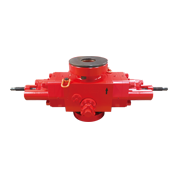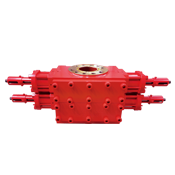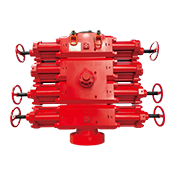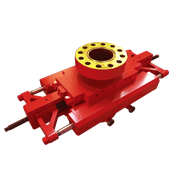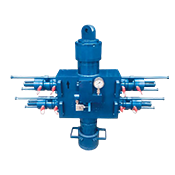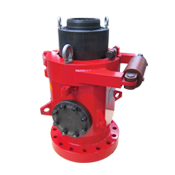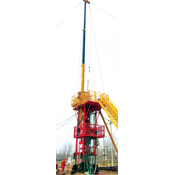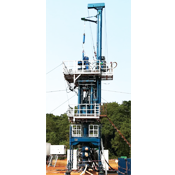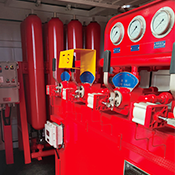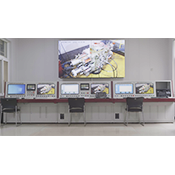Understanding the Critical Role of OEM Well Control Pressure Test Systems in Agriculture
2025-02-23
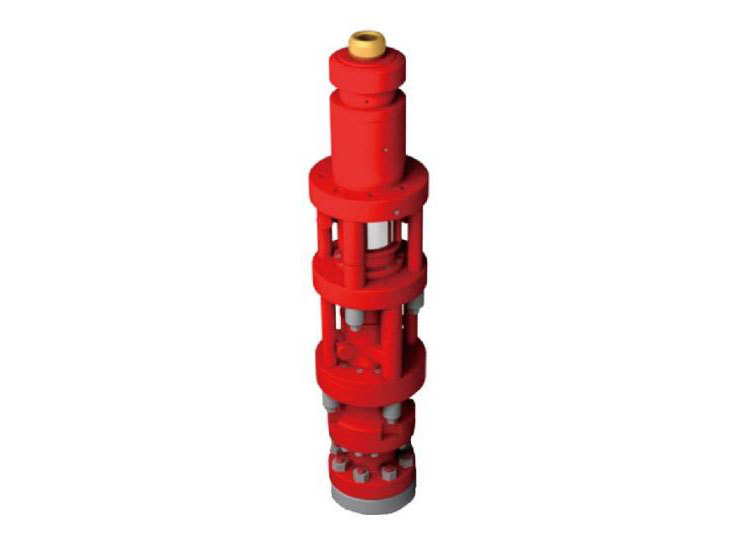
Understanding the Critical Role of OEM Well Control Pressure Test Systems in Agriculture
Table of Contents
- Introduction to OEM Well Control Pressure Test Systems
- The Significance of Well Control Pressure Test Systems in Modern Agriculture
- Key Components of OEM Well Control Pressure Test Systems
- Enhancing Operational Efficiency with OEM Systems
- Safety Standards and Compliance in Agriculture
- Minimizing Environmental Impact through Effective Pressure Testing
- Real-World Applications: Case Studies in Agriculture
- Future Trends in OEM Well Control Pressure Test Systems
- Frequently Asked Questions (FAQs)
- Conclusion: The Future of Agriculture with OEM Systems
Introduction to OEM Well Control Pressure Test Systems
In the evolving landscape of agriculture, **safety** and **efficiency** are paramount. OEM (Original Equipment Manufacturer) Well Control Pressure Test Systems are at the forefront of ensuring these aspects by providing essential testing capabilities that protect both the environment and agricultural resources. With the integration of advanced technology, these systems facilitate precise pressure testing, enabling farmers and agricultural businesses to mitigate risks associated with fluid management and pressure control.
The Significance of Well Control Pressure Test Systems in Modern Agriculture
Implementing OEM Well Control Pressure Test Systems significantly enhances operational reliability. These systems are not merely added features; they serve as the backbone of **risk management strategies** within agricultural operations. As modern farming techniques evolve to include more sophisticated machinery and techniques, the necessity for robust pressure testing systems increases.
The importance of these systems can be summarized in several key areas:
1. Ensuring Safety
Safety is the foremost concern in any agricultural setting. Pressure testing systems help identify potential failures before they occur, reducing the likelihood of accidents. With agricultural operations often involving high-pressure environments, these systems play a crucial role in ensuring worker safety and minimizing equipment failure.
2. Enhancing Efficiency
Efficiency is vital in a sector where margins can be slim. By implementing OEM pressure test systems, agricultural operations can achieve **consistent performance** and avoid costly downtimes. Testing ensures that all equipment operates within safe pressure parameters, facilitating smoother operations.
3. Regulatory Compliance
The agricultural industry is subject to numerous regulations regarding safety and environmental impact. OEM Well Control Pressure Test Systems ensure compliance with these regulations, helping businesses avoid penalties and maintain their operational licenses.
Key Components of OEM Well Control Pressure Test Systems
Understanding how OEM Well Control Pressure Test Systems function requires insight into their core components. These systems are composed of several integral parts that work harmoniously to achieve effective pressure testing.
1. Pressure Sensors
Pressure sensors are pivotal in monitoring the pressure levels within a system. They provide real-time data that is essential for determining whether the equipment is functioning safely.
2. Control Panels
Control panels are user interfaces that allow operators to manage and monitor the pressure testing process. They display critical information, including pressure readings and alerts, enabling prompt decision-making.
3. Data Logging Systems
Data logging systems record pressure readings over time, creating a historical profile of the equipment's performance. This data is invaluable for analysis and predictive maintenance.
4. Safety Valves
Safety valves are designed to release pressure automatically when it exceeds safe levels. This feature is crucial for preventing equipment damage and ensuring worker safety.
Enhancing Operational Efficiency with OEM Systems
Operational efficiency is vital for maintaining profitability in agriculture. OEM Well Control Pressure Test Systems contribute to this efficiency in several ways:
1. Predictive Maintenance
By utilizing data from pressure tests, farmers can engage in predictive maintenance, addressing issues before they escalate into significant problems. This proactive approach minimizes downtime and enhances productivity.
2. Streamlined Processes
The integration of pressure testing into regular maintenance routines streamlines processes and ensures that all equipment operates at optimal levels. This efficiency translates to reduced labor costs and increased output.
Safety Standards and Compliance in Agriculture
Compliance with safety standards is non-negotiable in agriculture. OEM Well Control Pressure Test Systems help ensure that all operations adhere to local and international safety regulations.
1. Understanding Regulatory Requirements
Different regions have varying regulations dictating safety measures in agriculture. Familiarizing oneself with these laws is essential for compliance. OEM systems are designed to meet or exceed these standards, providing peace of mind to operators.
2. Training and Best Practices
Effective training programs that include the proper use of pressure testing systems ensure that all personnel are equipped to handle equipment safely. Implementing best practices further enhances safety and compliance within agricultural operations.
Minimizing Environmental Impact through Effective Pressure Testing
As the focus on sustainability grows, minimizing environmental impact has become a critical concern in agriculture. OEM Well Control Pressure Test Systems contribute significantly to this goal.
1. Preventing Spills and Leaks
By regularly testing pressure levels, businesses can identify potential leaks before they result in spills. This proactive measure protects surrounding ecosystems and complies with environmental regulations.
2. Resource Conservation
Efficient use of resources is paramount in sustainable agriculture. Proper pressure testing ensures that machinery operates at optimal levels, conserving water and other essential resources in farming operations.
Real-World Applications: Case Studies in Agriculture
Case studies provide valuable insights into the practical applications of OEM Well Control Pressure Test Systems in agriculture.
1. Case Study: Efficient Water Management
In a region where water scarcity is a significant concern, an agricultural business implemented pressure test systems to regulate irrigation practices. By ensuring proper pressure levels, the farm was able to optimize water usage, leading to a 30% reduction in water consumption.
2. Case Study: Enhanced Safety Protocols
Another farm dealing with high-pressure systems incorporated OEM pressure testing to enhance safety protocols. Following the implementation, they reported a 40% decrease in workplace accidents related to equipment failure.
Future Trends in OEM Well Control Pressure Test Systems
As technology evolves, so too does the landscape of OEM Well Control Pressure Test Systems. Several trends are shaping the future of these systems in agriculture:
1. Integration with IoT Technology
The Internet of Things (IoT) is revolutionizing how pressure testing systems operate. Future systems will likely feature advanced connectivity options, allowing for remote monitoring and real-time data analysis.
2. Increased Automation
Automation will play a critical role in streamlining operations. Future OEM systems are expected to incorporate self-testing capabilities, reducing the need for manual intervention.
Frequently Asked Questions (FAQs)
1. What is an OEM Well Control Pressure Test System?
An OEM Well Control Pressure Test System is a specialized equipment designed to monitor and manage pressure levels in agricultural operations, ensuring safety and compliance.
2. How does pressure testing improve safety in agriculture?
Pressure testing identifies potential failures before they occur, significantly reducing the risk of accidents and equipment malfunctions.
3. What are the key benefits of implementing these systems?
Key benefits include enhanced safety, improved operational efficiency, and compliance with regulatory standards.
4. Can these systems help in resource conservation?
Yes, by ensuring optimal pressure levels, these systems help conserve water and other essential resources in agricultural operations.
5. How do I choose the right OEM Well Control Pressure Test System for my operation?
Choosing the right system involves evaluating your specific operational needs, budget, and compliance requirements. It’s recommended to consult with industry experts and conduct thorough research.
Conclusion: The Future of Agriculture with OEM Systems
In conclusion, OEM Well Control Pressure Test Systems play a **vital role** in modern agriculture. Their ability to enhance safety, improve operational efficiency, and ensure compliance with regulatory standards underscores their importance in the agricultural sector. As technology advances, the ongoing development of these systems promises to further revolutionize farming practices, ensuring a sustainable future for agricultural operations worldwide. Embracing these innovations will be essential for businesses aiming to thrive in an increasingly complex agricultural landscape.
PREVIOUS:
Related News
Contact Us
Mailbox:
tiehu@tiehupetro.com
Telephone:
86-317-2616808
Address:
Yanling Industrial Zone, Renqiu City, Cangzhou City, Hebei Province, China

